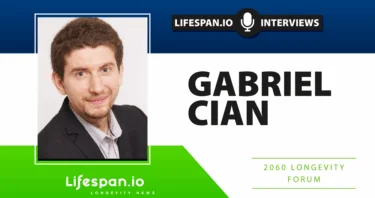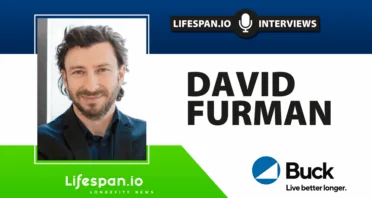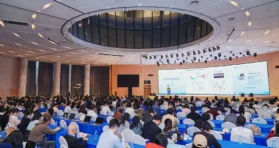
Your #1 Source for Life Extension News
Lifespan.io offers the latest information on rejuvenation biotechnology and life extension technologies. Our news outlet brings you the latest aging research, financial, and advocacy news, which is great if you like to keep up to date with everything happening in this rapidly changing field on a daily basis.
The Latest Longevity News Stories

Scientists Successfully Edit Mitochondrial DNA
A new study demonstrates that novel gene-editing tools can correct disease-causing mutations in mitochondrial DNA in primary human cells [1]. Smaller editing tools needed Genome-editing tools such as CRISPR were one of the greatest scientific […]

Senolytics May Affect Inflammation-Related Cognitive Decline
Researchers have found that inflamed, senescent microglia prune too many synapses in the hippocampus and demonstrated that a senolytic compound can ameliorate this process in Aging Cell. Some synapse pruning […]

Gabriel Cian on Investment and the 2060 Longevity Forum
In this Lifespan interview, we speak with Gabriel Cian, founder of the 2060 Longevity Forum, about how his background in software shaped his views on healthspan innovation, the forum’s approach […]

Molecular Similarities Between Cigarette Smoking and Aging
Researchers have analyzed molecular patterns from different tissues obtained from over 700 people and learned that smoking acts as an aging accelerator and involves molecular changes in tissues beyond those directly exposed to cigarette smoke [1]. Millions of preventable […]

Inflammaging Might Not Be Universal Across Populations
By comparing data from industrialized and non-industrialized societies, a new study calls into question some assumptions about the relationship between inflammation and aging [1]. Harmful protection Inflammation accompanies us throughout our entire lives. Without it, we would not be […]

Five Hallmarks of Stem Cell Aging Proposed
In Cell Stem Cell, a trio of reviewers has proposed five hallmarks that are specific to the aging of stem cells. Functional rather than molecular This review begins with a note that its classifications focus on […]

Dr. David Furman on Inflammation and Aging
The longevity field hasn’t been very good at naming things, but one notable exception is “inflammaging”: the low-grade chronic inflammation that […]

Fixing Sugar Metabolism Shows Promise Against Dementia
Scientists have shown that aberrant metabolism of glycogen in neurons is linked to the accumulation of harmful tau protein. Caloric restriction, genetic interventions, and small molecules might help [1]. Glycogen and the brain Aberrant aggregation of microtubule-associated protein […]

Researchers Connect Cellular Markers to Physical Well-Being
In Aging Cell, a team of researchers has described how the health of skin fibroblasts relates to physical and functional ability. […]

Healthspan Effects of an Anti-Aging Vaccine on Mice
The researchers of a recent study published in Aging Cell described their novel CD38 peptide vaccine, which improved many measurements of physical health and prevented cognitive decline in aged mice [1]. A long-term anti-aging vaccine Many anti-aging strategies, such as […]

Study Discovers a Mammalian Mechanism of Tissue Regeneration
Scientists have analyzed the differences between mammalian species that can regrow ear tissue after injury and those that cannot. Their findings can pave the way for novel regenerative therapies [1]. The lost art of regeneration Many animal species have […]

Rejuvenation Roundup June 2025
This month, in between reporting on new methods of affecting aging at its most basic levels, we caught up with AI developers and a longevity fund. Here’s what’s happened in June. LEAF News Springtime for the Longevity Industry: […]
Interviewing the leading experts in aging research and longevity
We have a dedicated team of journalists who have interviewed many of the leaders in the field about their research and the drive to end age-related diseases. You can find our latest interviews below.
Regular Digest Articles
We publish the Rejuvenation Roundup – a monthly digest of what is happening in the field, a Longevity Market Recap – a monthly digest focused on the investment and business side of the field, and a quarterly Editorial – focusing on the activities of the news outlet and the wider organization.
Industry Press Releases
You can find some press releases from various companies in our field below. Lifespan.io does not endorse any of these PRs and they are simply provided for information and interest.
Want even more news?
If you want to see even more recent articles, check out all news stories, or if you would like to look at a specific year or month head to the news archive.













